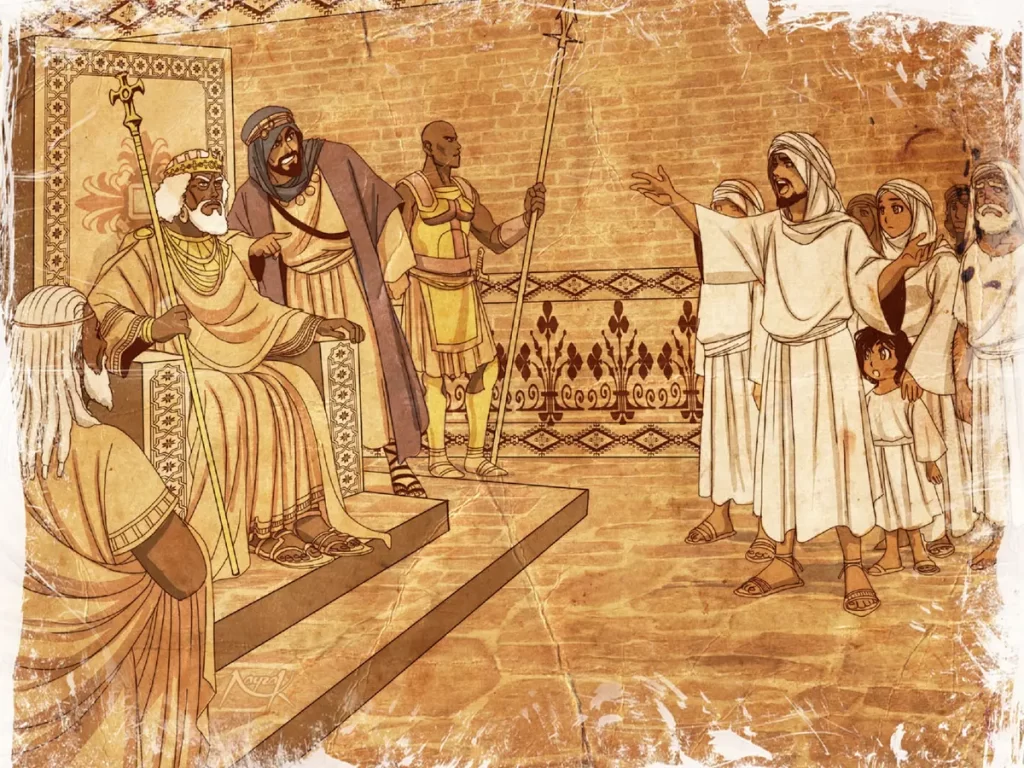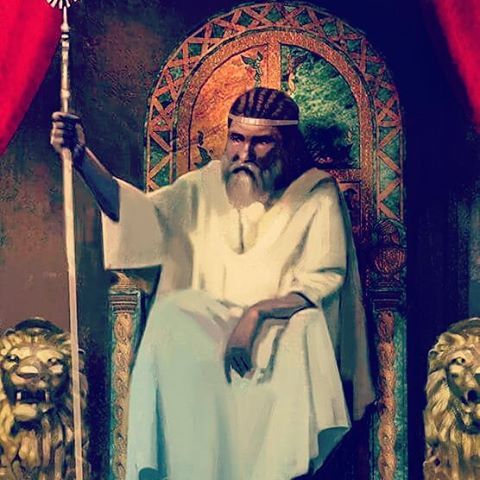
Quraish increase Persecution – First Hijra of 615 C.E. to Abyssinia
Persecution by the Quraish grew fiercer every day and the sufferings of the Prophet’s disciples became unbearable. He had heard of the righteousness, tolerance, and hospitality of the neighboring Christian king of Abyssinia.
He recommended such of his companions who were without protection to seek refuge in the kingdom of that pious king, Al Najashi (Negus).
Some fifteen of the unprotected adherents of Islam promptly availed themselves of the advice and sailed
to Abyssinia. Here they met with a very kind reception from the Negus.
This is called the first hijrah (migration) in the history of Islam and occurred in the fifth year of the Prophet
Muhammad’s mission, A.D. 615. These emigrants were soon followed by many of their fellow sufferers, until the number reached eighty-three men and eighteen women.
The hostile Quraish, furious at the escape of their victims, sent deputes to the king of Abyssinia to
request him to deliver up the refugees, that they might be put to death for adjuring their old religion and embracing a new one.
The king summoned the poor fugitives and inquired of them what was the religion, which they had adopted in preference to their old faith. Ja’far, son of Abu Talib and brother of ‘Ali, acted as spokesman for the exiles.
He spoke thus: “O king, we were plunged in the depth of ignorance and barbarism, we adored idols, we lived in unchastity, and we ate dead bodies, and we spoke abomination, we disregarded every feeling of humanity and sense of duty towards our neighbors, and we knew no law but that of the strong, when Allah raised among us a man, of whose birth, truthfulness, honesty, and purity we were aware.
He called us to profess the Unity of Allah and taught us to associate nothing with Him; he forbade us the worship of idols and enjoined us to speak the truth, to be faithful to our trusts, to be merciful, and to
regard the rights of neighbors; he forbade us to speak evil of the worship of Allah and not to
return to the worship of idols of woos and stone and to abstain from evil, to offer prayers, to give
alms, to observe the fast.
We have believed in him, we have accepted his teachings and his injunctions to worship Allah alone and to associate nothing with Him. Hence our people have persecuted us, trying to make us forego the worship of Allah and return to the worship of idols of wood and stone and other abominations. They have tortured us and injured us until, finding no safety among them, we have come to your kingdom trusting you will give us protection against their persecution.”

Al-Najashi (Negus), King of Abyssinia protects Muslims
After hearing the above speech, the hospitable king ordered the deputies to return to their people
in safety and not to interfere with their fugitives. Thus the emigrants passed the period of exile in
peace and comfort.
While the followers of the Prophet sought safety in foreign lands against the persecution of their
people, he continued his warnings to the Quraish more strenuously than ever.
Again they came to him with offers of riches and honor, which he firmly and utterly refused. But they mocked at him and urged him for miracles to prove his mission.
He used to answer: “Allah has not sent me to work wonders; He has sent me to preach to you.”
Thus disclaiming all power of wonder working, the Prophet ever rested the truth of his divine
mission upon his wise teachings. He addressed himself to the inner consciousness of man, to his
common sense and to his own better judgement:
“Say (O Muhammad): “I am only a human being like you. It is inspired in me that your Ilah
(God) is One Ilah (God- Allah), therefore take the Straight Path to Him (with true Faith –
Islamic Monotheism) and obedience to Him and seek forgiveness of Him. And woe to Al
Mushrikeen; (polytheists, pagans, idolaters, and disbelievers in the Oneness of Allah etc., those
who worship others along with Allah or set up rivals or partners to Allah etc. (Ch 41:6 Quran)
Despite all the exhortation of the Prophet, the Quraish persisted in asking him for a sign. They
insisted that unless some sign be sent down to him from his Lord, they would not believe.
The disbelievers used to ask: “Why has Muhammad not been sent with miracles like previous
prophets?”
The Prophet replied: “Because miracles had proved inadequate to convince. Noah
was sent with signs, and with what effect? Where was the lost tribe of Thamud? They had refused
to receive the preaching of the Prophet Salih, unless he showed them a sign and caused the rock
to bring forth a living camel. He did what they asked.
In scorn they cut the camel’s feet and then daring the prophet to fulfill his threats of judgment, were found dead in their beds the next morning, stricken by the angel of the Lord.”
The Holy Quran is a Miracle

There are some seventeen places in the Quran, in which the Prophet Muhammad is challenged to
work a sign, and he answered them all to the same or similar effect: Allah has the power of
working miracles, and has not been believed; there were greater miracles in nature than any which
could be wrought outside of it; and the Quran itself was a great, everlasting miracle.
The Quran, the Prophet used to assert to the disbelievers, is a book of blessings which is a warning for the whole world; it is a complete guidance and explains everything necessary; it is a reminder of what
is imprinted on human nature and is free from every discrepancy and from error and falsehood. It
is a book of true guidance and a light to all.
As to the sacred idols, so much honored and esteemed by the pagan Arabs, the Prophet openly
recited:
“They are but names which you have named – you and your fathers – for which Allah has sent
down no authority.” (CH 53:23 Quran)
When the Prophet thus spoke reproachfully of the sacred gods of the Quraish, the latter redoubled
their persecution. But the Prophet, nevertheless, continued his preaching undaunted but the
hostility of his enemies or by their bitter persecution of him.
And despite all opposition and increased persecution, the new faith gained ground. The national fair at Okadh near Mecca attracted many desert Bedouins and trading citizen of distant towns.
These listened to the teachings of the Prophet, to his admonitions, and to his denunciations of their sacred idols and of their superstitions. They carried back all that they had heard to their distant homes, and thus the advent of the Prophet was made know to almost all parts of the peninsula
Makkans plea to Abu Talib to stop the Prophet
The Meccans, however, were more than ever furious at the Prophet’s increasing preaching against
their religion. They asked his uncle Abu Talib to stop him, but he could not do anything.
At , as the Prophet persisted in his ardent denunciations against their ungodliness and impiety, they
turned him out from the Ka’ba where he used to sit and preach, and subsequently went in a body
to Abu Talib.
They urged the venerable chief to prevent his nephew from abusing their gods any longer or uttering any ill words against their ancestors.
They warned Abu Talib that if he would not do that, he would be excluded from the communion of his people and driven to side with Muhammad; the matter would then be settled by fight until one of the two parties were exterminated.
Abu Talib neither wished to separate himself from his people, nor forsake his nephew for the
idolaters to revenge themselves upon.
He spoke to the Prophet very softly and begged him to abandon his affair.
To this suggestion the Prophet firmly replied: “O my uncle, if they placed the
sun in my right hand and the moon in my left hand to cause me to renounce my task, verily I
would not desist therefrom until Allah made manifest His cause or I perished in the attempt.”
The Prophet, overcome by the thought that his uncle and protector was willing to desert him, turned
to depart. But Abu Talib called him loudly to come back, and he came. “Say whatever you please;
for by the Lord I shall not desert you ever.”
Abu Talib protects his Nephew, the Prophet
The Quraish again attempted in vain to cause Abu Talib to abandon his nephew.
The venerable chief declared his intention to protect his nephew against any menace or violence.
He appealed to the sense of honor of the two families of the Bani Hashim and the Bani Muttalib, both families being kinsmen of the Prophet, to protect their member from falling a victim to the hatred of rival
parties.
All the members of the two families nobly responded to the appeal of Abu Talib except Abu Lahab, one of the Prophet’s uncles, who took part with the persecutors.
for scientific miracles articles visithttp://www.sunofislam.com
